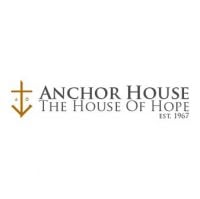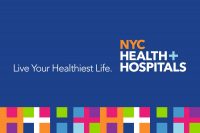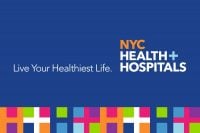Paul J. Cooper Center for Human Services
Drug Rehab Center in Brooklyn, New York
The Paul J. Cooper Center for Human Services offers a comprehensive and evidence-based addiction treatment program that includes detoxification, intensive outpatient care, partial hospitalization, and outpatient services with private health insurance coverage and aftercare support such as relapse prevention strategies and ongoing therapy to ensure lasting sobriety.
About This New York Facility
Paul J. Cooper Center for Human Services is a professional and comprehensive addiction treatment center located in Brooklyn, New York. It provides recovery services to individuals facing the challenge of overcoming drug and alcohol addiction, as well as those dealing with dual diagnosis and mental health issues. The Center offers a wide range of treatment services including aftercare support, medical detox, drug rehab, intensive outpatient therapy, outpatient services, and Partial-Hospitalization Levels of Care. The Center has the required accreditation and licenses issued by the Department of Mental Health and Hygiene, ensuring the highest quality of care for all its clients.
Paul J. Cooper Center for Human Services provides specialized treatment for those suffering from drug and alcohol addiction, dual diagnosis, opioid addiction, and substance abuse. The Center's team of professionals is dedicated to providing personalized and comprehensive care for each patient, helping them identify the root causes of their illness and providing evidence-based treatments, such as cognitive-behavioral therapy, family therapy, and group therapy. The Center also offers holistic services such as yoga therapy, nutritional therapy, and mindfulness classes. Moreover, clients can benefit from the support of fellow recovering individuals through 12-step and other peer support groups.
Genders
Ages
Modality
Additional
Conditions and Issues Treated
Using both legal medications and illegal substances in order to maintain an addiction is substance abuse. If you are taking more of your prescription, or earlier than the prescribed time interval between doses than is directed you may be abusing that medication. If you are obtaining legal medications illegally in or near Brooklyn, NY, you may be suffering from substance abuse.
Illegal substances can become addictive after a single use and lead rapidly to substance abuse. The professionals at Paul J. Cooper Center for Human Services are here to help.
Opioid addiction treatment helps people addicted to opioids in New York curb their drug use. The selection of a treatment setting depends on the severity of the addiction. Mild cases are usually treated in outpatient facilities; severe cases need hospitalization or treatment in a residential facility. Doctors use medicines along with counseling and behavioral therapies to treat the addiction. The treatment includes medication, counseling and therapy. It can also include group counseling, individual counseling and family counseling.
Levels of Care Offered at Paul J. Cooper Center for Human Services
This center offers a variety of custom treatment tailored to individual recovery. Currently available are Aftercare Support, Detox, Drug Rehab, Intensive Outpatient, Outpatient, Partial-Hospitalization, with additional therapies available as listed below.
Detox is a drug rehab process that begins before the actual drug rehab treatment. It is used to remove any residual toxins left in your body (and brain) after using drugs, and it is used with the intent to help you or your loved one complete drug rehab.
If you are addicted to opiates like heroin, methadone, or prescription painkillers, you will detox with medication. This is because the withdrawal symptoms are often more intense and uncomfortable for an opiate addict than for someone who has abused or is dependent on other drugs, like cocaine.
To assist with alcohol or opioid abuse, or a co-occurring condition, Paul J. Cooper Center for Human Services offers an outpatient treatment program. For their rehabilitation and other services, the New York patient will go to the treatment center, yet return home every night. After most of the program is completed, the level of mandatory participation reduces.
A partial hospitalization program is set up to cover those struggling with acute symptoms of addiction. This means that the individual is cared for in a hospital-like environment in Brooklyn, NY during the struggle of those symptoms, but allowed to go home at night. Most PHPs require approximately six-hours of therapy, at least three days per week.
Aftercare comprises services that help recovering addicts readjust to normal day-to-day New York activities. It can last a year or even longer. Services include individual and family counseling, medications to reduce cravings, and treatment of psychiatric and other medical conditions. Aftercare support begins once you have completed earlier stages of treatment.
Therapies & Programs
Therapy plays a major role in addiction recovery. It encourages patients to get to the root of their addiction and learn how to better handle the issues that led to using. Therapy can be conducted in group and one on one settings. In Paul J. Cooper Center for Human Services‘s individual therapy, the patient meets with the therapist in a one on one setting. This allows them to focus on the underlying issues of addiction and come up with solutions to prevent future abuse.
When the whole family is involved, healing can be far more successful. Family counseling involves genetic factors to the family of the addict. This offers the means to cope with addiction and its underlying emotional disorders for loved ones. It is a helpful method for addicts in helping to adjust to sober living.
Trauma therapy allows people who struggled with a past trauma to face the situation and learn to overcome the situation. Many people who went through trauma early on, struggle with addiction later in life. By addressing the trauma and moving past the issues, it can help someone attending treatment at Paul J. Cooper Center for Human Services in Brooklyn, NY move forward with their recovery and begin to take a better hold of their sober future.
REBT stands for rational emotional behavior therapy. This is a type of cognitive behavioral therapy, or CBT, that combines images with thoughts and behaviors. It allows for deeper education and understanding of what one can do to help themselves with recovery. It is a deep sense of self-help education managed by Paul J. Cooper Center for Human Services that lets someone recovering work through issues on their own, knowing they have the support of people around them if they need it.
Contingency management is a way to help motivate someone to remain substance free. It is a process Paul J. Cooper Center for Human Services uses which involves rewarding positive choices and good outcomes. As humans we are wired to recreate experiences that lead to positive feelings.
Payment Options Accepted
For specific insurance or payment methods please contact us.
Is your insurance accepted?
Ask an expert, call (888) 674-0062
Additional Details
Specifics, location, and helpful extra information.
Brooklyn, New York 11216 Phone Number(718) 346-5900 Meta DetailsUpdated November 25, 2023
Staff Verified
Patient Reviews
There are no reviews yet. Be the first one to write one.
Brooklyn, New York Addiction Information
More than 2 million New Yorkers are currently suffering from some type of substance abuse and many of those are minors. Alcohol abuse, in particular, is prevalent among those underage. As a result of the high prices and regulation of prescription drugs, many New Yorkers turn to heroin instead. This has led to a serious heroin epidemic in the state.
Brooklyn has a hospitalization rate for drug overdoses nearly double the New York City average. In 2012, there were 1,814 admissions to drug treatment centers in Brooklyn, which accounted for 6.8% of all admissions in NYC. Over 3 million emergency room visits were related to drug misuse in 2016. Some of the most common treatments include inpatient rehabilitation, outpatient rehabilitation, 12-step programs, and detoxification.
Treatment in Nearby Cities
- Merrick, NY (20.7 mi.)
- Dobbs Ferry, NY (23.0 mi.)
- Niagara Falls, NY (310.6 mi.)
- Cortland, NY (175.7 mi.)
- Hudson, NY (108.6 mi.)
Centers near Paul J. Cooper Center for Human Services
The facility name, logo and brand are the property and registered trademarks of Paul J. Cooper Center for Human Services, and are being used for identification and informational purposes only. Use of these names, logos and brands shall not imply endorsement. RehabNow.org is not affiliated with or sponsored by Paul J. Cooper Center for Human Services.








